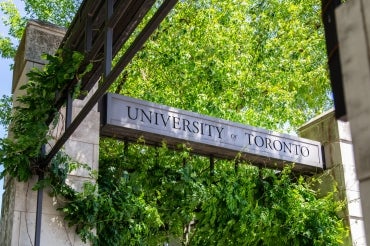U of T reviews role of campus safety services in student mental health crises

(Photo by Daria Perevezentsev)
Published: May 27, 2021
The University of Toronto has launched a review of the role of its campus safety services in student mental health crises as part of a broader effort to enhance mental health and wellbeing across its three campuses.
In line with the ongoing implementation of recommendations from the final report of the Presidential & Provostial Task Force on Student Mental Health, as well as administration’s response, the review seeks to enhance the co-ordination of U of T’s capacity for direct crisis response while expanding supports and resources for U of T community members. It will also examine the need for enhanced mental health training for campus police and increased collaboration with other on-campus first responders.
The panel is actively seeking feedback from members of the U of T community. Those who wish to contribute their thoughts anonymously can do so through an online consultation form that will be open until this fall.
“The University of Toronto is a diverse community and we are committed to ensuring that students across all three campuses feel safe, welcome and supported,” says Professor Sandy Welsh, U of T’s vice-provost, students.
“This review is grounded in principles of equity and inclusion and in our commitment to fostering an environment that supports student mental health and wellbeing.”
Led by a panel that includes faculty, staff and students, the review encompasses four broad categories: access to mental health supports on and off campus and how campus safety personnel are integrated with those supports; the role of special constables when responding to situations where community members may represent a risk to themselves or others; the application of principles of equity, diversity, inclusion and accessibility in cases involving mental health; and the mental health supports available to campus safety personnel themselves.
 Joe Desloges
Joe Desloges
Joe Desloges, the panel’s chair and a professor in the department of geography and planning in the Faculty of Arts & Science, says the review aims to align the protocols, practices and guidelines for campus safety services across the three campuses when responding to student mental health crises.
That includes collaborating with groups within the U of T community, such as the faculties and divisions, as well as with the university’s hospital partners.
“Our special constables can be first responders to a student who is facing a mental health crisis,” says Desloges. “In those critical situations, what kind of training comes into play? What kind of protocols?”
Desloges added that the review gives U of T the opportunity to compare its current practices with those of peer institutions. One focus, he says, will be on training to defuse and de-escalate crisis situations.
“We are just one of many post-secondary community safety groups across North America,” he says. “Is U of T employing the latest and the most effective model when it comes to student health crises?”
 Ben Eraze
Ben Eraze
Panel member Ben Eraze, an undergraduate student at Woodsworth College, says he hopes the review will shed light on the experiences of Black and other racialized students who are dealing with mental health challenges.
“We are trying to make the community safe by providing insight into how special constables should treat or approach students, especially students with diverse backgrounds who may unfortunately encounter biases,” says Eraze, who is the founder and president of Black Future Lawyers.
The review will rely on recommendations from all sectors of the U of T community. Once it has been completed, a final report will be submitted to Welsh and Professor Kelly Hannah-Moffat, vice-president of human resources and equity.
“It is critical to ensure that special constables have the training required to respond to student mental health crises in an equitable, sensitive and knowledgeable way,” Hannah-Moffat says.
 Vishar Yaghoubian
Vishar Yaghoubian
“We should also provide the mental health supports that special constables themselves may need. This review is an essential component of our tri-campus safety services’ commitment to being responsive to the diverse needs of our Black, Indigenous and racialized communities.”
Panel member Vishar Yaghoubian, an undergraduate student who formerly served as the mental health director for Woodsworth College, urged students to share their candid opinions with the panel.
“I really, really encourage all the different student groups, student unions – anybody with an experience, good or bad – to bring it to this review,” says Yaghoubian.
“This is your chance to speak out. We are listening.”



